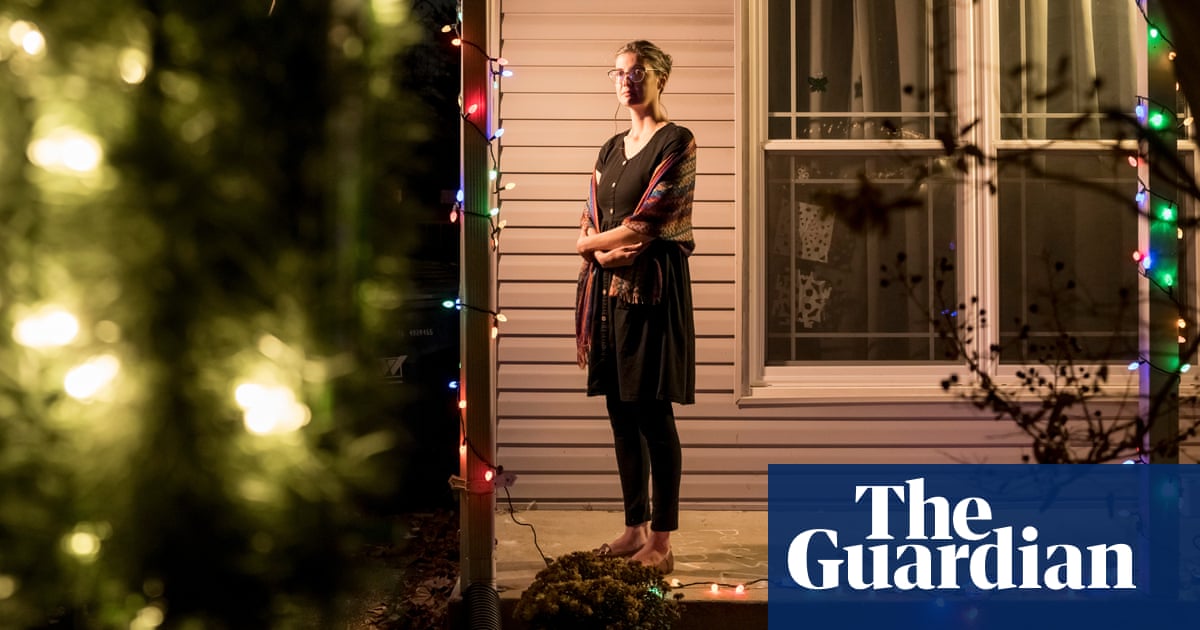
found the graveyard kit on a clearance rack in my local Kmart in Damascus, Oregon in 2010. It contained an assortment of tacky Halloween items: Styrofoam gravestones and bones, plastic black roses and cloth splattered with fake blood. I stuck it in my loft, still shrink-wrapped, and forgot about it until a couple of years later, when my daughter announced she wanted a Halloween-themed fifth birthday party.
As I unpacked the decorations, a tightly folded sheet of paper fluttered to the floor. Smoothed out, it revealed a neat, handwritten note. “Sir,” it began. “If you occasionally buy this product, please kindly resend this letter to the World Human Right Organisation. Thousands people here who are under the persecution of the Chinese Communist Party Government will thank and remember you for ever.”
The letter was unsigned, but said the kit had been made in Masanjia labour camp in Shenyang, China, where the writer worked 15 hours a day under threat of torture. It said many inmates had been detained without trial because they promoted Falun Gong – a spiritual practice based on qigong exercises and meditation, outlawed by the Chinese government. Google confirmed the camp was real and ominously devoted to “re-education through labour”. The letter had travelled almost 6,000 miles to reach me, like a message in a bottle, and I felt terrible I hadn’t discovered it sooner.
I sent a photo of the letter to Human Rights Watch and US Customs, and the PR manager at the charity I work for contacted our state’s newspaper, the Oregonian. The story didn’t run until Christmas Eve, when it made the paper’s front page. After that, the phone didn’t stop ringing – the New York Times, CNN and Fox News all ran stories and suddenly images of the letter appeared everywhere.
There was no shortage of people keen to criticise my actions. Many outlets had reproduced the text in full, including a reference to the unit and department the writer had been working in. I spent much of that Christmas reading comments saying that, by sharing those details, I’d endangered the writer and his colleagues. I started to doubt myself and ended up in tears. Hadn’t I done what the writer wanted?
It would be another six months before I found out for sure. A New York Times reporter made contact with a man claiming to be the letter writer: Sun Yi. He was an engineer who had been arrested in Beijing in 2008 due to his devotion to Falun Gong. He had served his two-and-a-half-year term at Masanjia by the time I found his SOS and was aware of the publicity its exposure had whipped up. Using a pseudonym, he wrote to thank me: he said he considered me his sister and would always be indebted. That same year, many of the re-education through labour camps closed and around 160,000 detainees were set free. There’s no doubt Sun Yi’s letter played a vital role in this.
Sun continued to practise and promote Falun Gong but never found the true freedom he craved – his home was repeatedly ransacked by police. Undeterred, he worked remotely with a Canadian producer to make a documentary about his experiences, and that’s how I finally got to meet him.
By 2016, Sun Yi’s life in Beijing had become so difficult he’d been forced to leave his wife and home to seek refugee status in Indonesia. When I was flown out to meet him in Jakarta, he was living without work or money and struggling to learn the language. But he greeted me warmly with a bunch of flowers and was keen to show me the tiny flat he called home.
Sun told me that, in all, he’d managed to smuggle 20 letters into Halloween sets bound for the States; the others were apparently never discovered. Tragically, Sun didn’t live to see the film completed. He died on 1 October 2017, six months after I’d met him. The official cause of death was kidney failure, but we suspect foul play. Despite everything he’d been through, the man I met was a fit-looking 50-year-old who still hoped to be reunited with his wife.
This Halloween and every other I’ll set up a little shrine in Sun’s memory: he was the strongest person I’ve met.
• As told to Chris Broughton
Do you have an experience to share? Email experience@theguardian.com.












